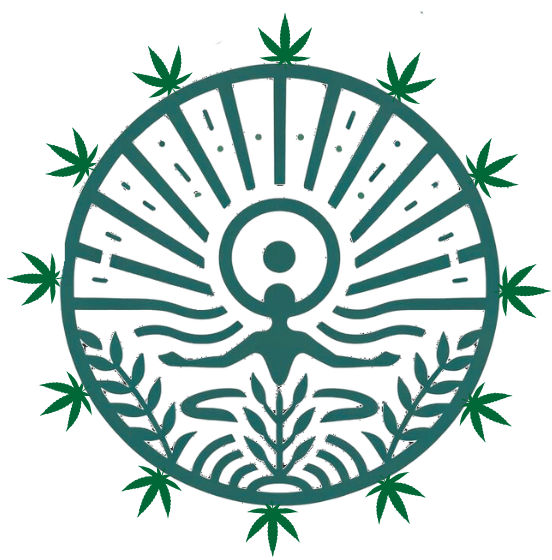Feeling gut discomfort after consuming magic mushrooms?
It’s not uncommon.
Your body might be signaling an overload and it’s time to take heed.
Let’s dive into understanding the signs your gut may display when you need to cut back on magic mushrooms.
We’ll also explore effective strategies to alleviate this discomfort, promoting a healthier and more balanced interaction with this potent natural substance.
Stay tuned for comprehensive insights and practical advice!
How magic mushrooms affect your gut health
Magic mushrooms, or psilocybin mushrooms, have a profound effect on your brain and body.
When consumed excessively, they can disrupt your gut health significantly.
Psilocybin, the active compound in magic mushrooms, interacts with your serotonin receptors.
While this interaction is responsible for the hallucinogenic effects, it can also impact your gut health, as your gastrointestinal tract contains a large number of these receptors.
Particularly, excessive intake of magic mushrooms can lead to an overstimulation of these receptors in your gut.
The result?
Irregular bowel movements, bloating, and other digestive issues.
Besides, these psychoactive properties of magic mushrooms can also interfere with your body’s ability to regulate hunger and satiety, leading to unexplained weight changes.
7 signs you’re gut is telling you to cut back on magic mushrooms
1) Persistent stomach discomfort
When it comes to magic mushrooms, the most immediate sign your gut might give you is chronic stomach discomfort.
This isn’t about a one-time upset stomach. Instead, it’s a persistent issue that doesn’t seem to improve over time.
For me, the intrigue of this gut reaction lies in how our bodies communicate their distress in such a straightforward manner.
It’s a tangible, physical manifestation of what might otherwise remain an abstract concept – the need for a break.
Why?
Because magic mushrooms can cause gastrointestinal distress due to their psilocybin content.
This compound, while responsible for the psychedelic effects, can also irritate the gut lining causing symptoms such as cramping, bloating, and diarrhea.
So, here’s what you should do:
If you’ve been consuming magic mushrooms and notice these symptoms on a regular basis, it’s your body’s way of telling you something isn’t right.
It’s urging you to take a pause, reassess your consumption habits, and consider if you need to lay off the magic mushrooms for a while.
2) Unusual Bloating or Gas
Experiencing bloating or gas after consuming magic mushrooms isn’t just uncomfortable — it’s a signal from your body that something may be off.
The psilocybin in these mushrooms can cause rapid shifts in your gut flora, leading to gas production and bloating.
This disruption is often a direct result of the mushrooms’ complex compounds challenging your digestive system.
Therefore, if you frequently feel bloated or gassy after your psychedelic experiences, it might be time to consider the impact of these substances on your gut health and possibly reduce your intake.
3) Persistent diarrhea or constipation
Magic mushrooms can significantly affect gut motility, leading to issues like persistent diarrhea or constipation.
These symptoms occur as the psilocybin interacts with serotonin receptors in the gut, disrupting normal digestive rhythms and bowel movements.
Trust me, such consistent changes in your bowel habits after using magic mushrooms mean you should reassess your usage and seek ways to restore your gut balance.
3) Unexplained weight loss or gain
The influence of magic mushrooms on your body’s ability to regulate hunger and satiety can sometimes lead to unexplained weight loss or gain.
This fluctuation in weight can be unsettling and harmful over time.
The thing is, the psychoactive properties of the mushrooms disrupt normal eating patterns and metabolic processes,
As a result, it’s essential to monitor any significant changes in weight post-consumption and consider adjusting your intake accordingly.
4) Nausea or vomiting
Next up, nausea and vomiting are common side effects when your body reacts adversely to the ingestion of psilocybin-containing mushrooms.
These symptoms serve as a protective mechanism, attempting to expel substances that have potentially harmful effects on the stomach.
Regular occurrences of nausea or vomiting after taking magic mushrooms are clear signs that your body is struggling with the doses or frequency of consumption.
5) Heartburn or acid reflux
Unfortunately, sometimes psilocybin can also trigger gastrointestinal discomfort in the form of heartburn or acid reflux.
These symptoms arise when the compound stimulates excessive gastric acid production or when it relaxes the lower esophageal sphincter, allowing stomach acid to travel back up into the esophagus.
So, if you find yourself frequently reaching for antacids after consuming magic mushrooms, it might be time to consider how these substances affect your gastrointestinal health.
6) Decreased appetite
Have you noticed that your appetite decreases in days when you take magic mushrooms?
Well, it could be a result of the compound’s impact on the brain regions that regulate hunger cues.
While some might overlook this as a minor side effect, a sustained loss of appetite can lead to nutritional deficiencies and energy depletion.
Recognizing and addressing this symptom can help maintain your overall health and ensure that your body is receiving enough nourishment.
7) Fatigue after eating
Finally, feeling unusually tired after consuming magic mushrooms could indicate that your body is expending extra energy to digest and cope with the psychoactive effects.
This fatigue can be a sign of digestive stress, as your body works harder than usual to process and eliminate the toxins present in the mushrooms.
My advice is to listen to this fatigue and moderate your intake, which can prevent overexertion of your digestive system.
Implementing dietary changes
One of the most effective ways to alleviate gut discomfort following magic mushroom intake is to make some dietary modifications.
Diversifying your diet with gut-friendly foods can serve as a counterbalance, promoting a healthier digestive system.
Consider incorporating foods rich in fiber, probiotics, and lean proteins into your meals. These nutrients aid in digestion and can potentially mitigate the adverse effects of magic mushrooms on your gut.
After all, a balanced diet plays a crucial role in maintaining gut health and can significantly influence your body’s response to substances like magic mushrooms.
- Fiber-rich foods like whole grains, fruits, and vegetables can enhance digestion and reduce bloating.
- Probiotics found in yogurt or fermented foods can restore the balance of good bacteria in your gut, helping minimize discomfort.
- Lean proteins, on the other hand, are easy on your stomach and provide the necessary energy without causing distress.
Remember, gradual changes are more sustainable, so take it one step at a time.
How to reduce magic mushroom intake
Reducing your magic mushroom consumption is critical to restoring your gut health.
Here are some practical strategies that can help you achieve this:
- Set clear boundaries: Limit the frequency of your magic mushroom use and stick to your decision.
- Seek professional help: Reach out to healthcare professionals or support groups if you’re finding it challenging to reduce your intake.
- Maintain a balanced diet: Eating a variety of nutrient-rich foods can help restore your gut health, offsetting some of the impacts of magic mushrooms.
- Stay hydrated: Drinking plenty of water can aid digestion and lessen some side effects like constipation or bloating.
- Practice mindfulness: Mindful practices like meditation can help in managing cravings and reducing dependence.
Final words on maintaining gut health
As you can see, balancing the enjoyment of magic mushrooms while safeguarding your gut health is the key takeaway here.
We’ve explored various strategies from mindful consumption to hydration, dietary changes, and the importance of self-care.
These tools are designed to help you create a more balanced relationship with magic mushrooms, ensuring that your experiences with them are positive and beneficial, rather than discomforting.
It’s a testament to our belief in maintaining a growth mindset and holistic approach toward wellness, considering the interconnectedness of mind, body, and spirit.
Now that you’re equipped with this knowledge, you can confidently take steps to alleviate any gut discomfort associated with magic mushroom consumption.
Here’s to a healthier and more balanced journey with magic mushrooms!












